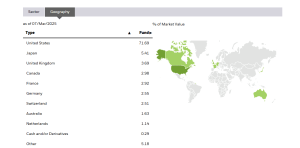Creating a passive income stream is a common way to safeguard against unexpected financial troubles. Many UK residents are constantly on the look out for new ways to bring in extra cash.
Fortunately, it’s now easier than ever to build towards this goal. The average British citizen has greater access to the stock market than ever before.
With that in mind, here are three ways to harness this power in 2025.
Dividend stocks
One of the most popular methods of earning income from stocks is via dividends. These are regular payments companies deliver to shareholders as a reward for their loyalty. The yield is the percentage paid out per share.
The amount varies and can be altered at any time depending on how well the business is performing. So it’s important to look for reliable companies with a long dividend track record.
For example, Vodafone recently cut its annual dividend from 9 cents to 4.5 cents per share. Whereas British American Tobacco has been increasing its dividend consistently for over 20 years.
Exchange-traded funds (ETF)
Recently, earning extra income by investing in ETFs has become more popular. These products provide a quick and easy way to get exposure to a wide range of stocks — often, an entire index.
While the funds typically provide stable income, it’s seldom in the double digits. Most ETFs return between 4% and 8% per year but there are some outliers.
For example, the iShares Core S&P 500 ETF has delivered annualised returns of 12.66% over the past 10 years. The fund attempts to beat the overall performance of the S&P 500 by weighting each stock based on market cap.
Investment trusts
Like an ETF, an investment trust provides exposure to a range of stocks. However, it’s usually a much smaller and more focused selection based on a goal like income or growth.
The advantage of an investment trust is that the hard work is taken care of. Rather than try to analyse stocks and balance a portfolio themselves, investors can leave that up to the fund manager.
However, this service incurs an ongoing fee, typically between 0.5% and 1%. This needs to be factored into the expected return.
A good income-focused fund could return a yield of 5%. While it may be less than some individual stock yields, its often more stable and reliable.
For example, the City of London Investment Trust (LSE: CTY) maintains an average yield of around 6%. It’s been paying and increasing its dividend consecutively for over 50 years. While past performance doesn’t indicate future results, it provides some peace of mind.
The trust is focused on British income stocks like HSBC, Shell, and RELX. Its ongoing charge is 0.37%.
While the fund is worth considering for dividend income, it isn’t highly diversified. Consequently, if the UK market dips, the trust falls with it. The share price is down 0.9% in the past five years because high inflation has hurt the UK economy. As such, it’s returned no more than the dividend payments. This is an ongoing risk that could hurt the fund’s performance if inflation rises again.
When picking stocks, investors should always consider the company-specific risks. Fortunately, companies typically provide guidance along with their interim results, helping investors to make informed decisions.
This post was originally published on Motley Fool






